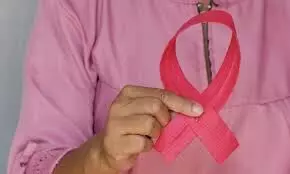Breast Cancer Awareness Month: Here is essential health checklist that women must follow
Breast Cancer Awareness Month stresses on open discussions to break stigma and encourage proactive measures
By - Kaniza Garari |
Hyderabad: What is the essential breast health checklist that women must follow?
With approximately 192020 new breast cancer cases and 98,337 deaths every year, according to GLOBOCAN 2022 statistics, there is a need for awareness and early detection.
Dr. Shravan Subramanyam, Managing Director of BPL Medical Technologies, lists an essential checklist for breast health:
Here are the practical steps every woman should incorporate into her wellness routine:
Schedule Regular Screenings:
Doctors recommend starting annual mammograms at age 40, or even earlier if there is a family history of breast cancer. Early diagnosis dramatically increases the chances of successful treatment.
Routinely undergo clinical breast examinations and mammograms.
Practice Monthly Self-Exams:
Perform a self-exam once a month, ideally a few days after your period. This awareness helps you quickly identify any abnormal changes, such as new lumps, thickening, or discharge.
Familiarize yourself with the normal appearance and feel of your breasts.
Know Your Family History:
Gather health histories from female relatives, including your mother, aunts, and grandmothers.
A family history of breast cancer may necessitate earlier or more frequent screenings. Genetic counseling or testing for BRCA mutations may also be recommended in high-risk cases.
Maintain a Healthy Lifestyle:
A balanced diet rich in fruits, vegetables, and lean protein, combined with at least 30 minutes of physical activity most days, helps reduce overall cancer risk. Additionally, maintaining a healthy weight, restricting alcohol, and avoiding smoking are crucial for breast wellness
Don’t Ignore Hormonal Health:
Be mindful of how hormonal changes affect your breast tissue.
Discuss any long-term hormonal therapies (e.g., birth control or postmenopausal treatments) with your doctor to understand the potential risks. Regular check-ins with a gynecologist or endocrinologist will help manage these changes.
Pay Attention to Changes:
Never dismiss persistent or unusual physical symptoms.
Seek medical attention for any new symptom, including persistent pain, dimpling of the skin, sudden swelling, or nipple changes. The golden rule is simple: when in doubt, get it checked out.
Make Breast Health a Conversation:
Talk openly about breast health with friends, sisters, and colleagues.
Open discussions help break down stigma and encourage proactive measures. A simple reminder to get a screening can be a life-changing or life-saving prompt.
A breast health checklist is not a luxury; it is an integral, non-negotiable part of a holistic wellness method.